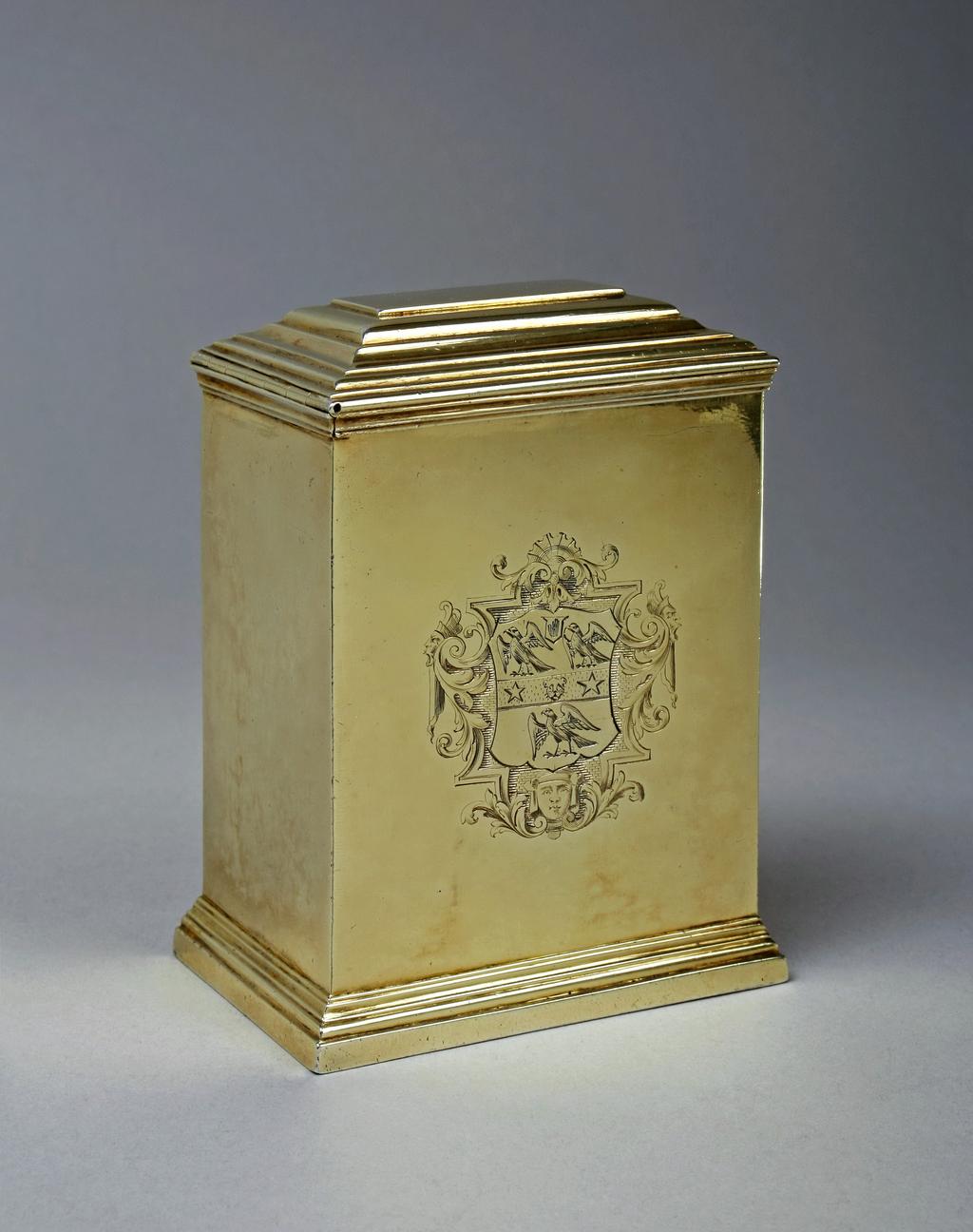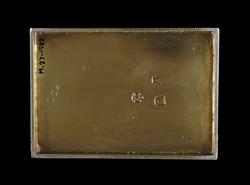Current Location: In storage
Maker(s)
Silversmith:
Hatfield, Charles (silversmith)
Entities
Categories
Description
Silver-gilt; oblong with stepped cover, engraved with a coat-of-arms
Silver-gilt; the oblong caddy stands on a stepped base, and has a hinged stepped cover. The front is engraved with a baroque cartouche containing a coat-of-arms argent on a fess sable between three falcons volunt azure a leopard's face between two mullets or in chief point a baronet's badge.
Notes
History note: The coat-of-arms of Stonhouse for either Sir John Stonhouse 6th Bt. (d.1740) of the senior line, or Sir John Stonhouse 3rd Bt. (d.1733) of the junior line. Sir William Stonhouse of Radley, Berkshire (son of George Stonhouse, clerk of the green cloth to Queen Elizabeth I) was created a baronet on 7 May 1628. On his death in 1631 he was succeeded by his elder son Sir John 2nd Bt (d. 1632) and then his younger son Sir George. Sir George Stonhouse 3rd Bt. (d. 1674) argued with his eldest son, and in 1670 he surrendered his patent to King Charles II and had a new one granted which excluded his eldest son from the succession. However his eldest son claimed the baronetcy and called himself the 4th baronet, while his younger brother John claimed the "new" baronetcy of 1670. So until 1740, when the senior line died out, two branches of the same family claimed to be baronets.
History note: Given by a member of the Messel family to Dr Greville Tait,
Legal notes
Given in memory of Dr. Greville Tait by his family
Measurements and weight
Weight: 440 g
Weight: 14:3 oz:dwt
Acquisition and important dates
Method of acquisition: Given
(1982-11-11)
by
Tait, G., Mrs.
Dating
18th Century, second quarter
George II
1728
CE
-
1729
CE
Note
The hallmarks are struck on the base only, and there is no lion passant. The lion passant would usually be struck with the other marks and also on the cover, possibly with the maker's mark. However, James Lomax notes in 'Country House Silver at Dunham Massey' that a similar pair of tea caddies, made for George Booth, 2nd Earl of Warrington, are marked on the bases alone.
Components of the work
Surface
composed of
gold
To Top Of Cover
Height 12 cm
Height 4¾ in
Base
Width 8.9 cm
Width 3½ in
Armorials
Sides And Base
Sides
Materials used in production
Silver
Techniques used in production
Gilding
: The body is formed of sheet silver folded or seamed to make a five-sided box. The foot rim is then applied. The box and its cover are then gilded, and the armorials engraved.
Inscription or legends present
- Text: CH
- Location: On the underside of the base
- Method of creation: Struck
- Type: Maker's mark
- Text: N
- Location: On the underside of the base
- Method of creation: Struck
- Type: Hallmark
Inscription present: leopard's head crowned
- Location: On the underside of the base
- Method of creation: Struck
- Type: Hallmark
References and bibliographic entries
Identification numbers
Accession number: M.27-1982
Primary reference Number: 119266
Stable URI
Audit data
Created: Saturday 6 August 2011
Updated: Monday 25 March 2024
Last processed: Thursday 14 August 2025
Associated departments & institutions
Owner or interested party:
The Fitzwilliam Museum
Associated department:
Applied Arts

 IIIF Manifest
IIIF Manifest




